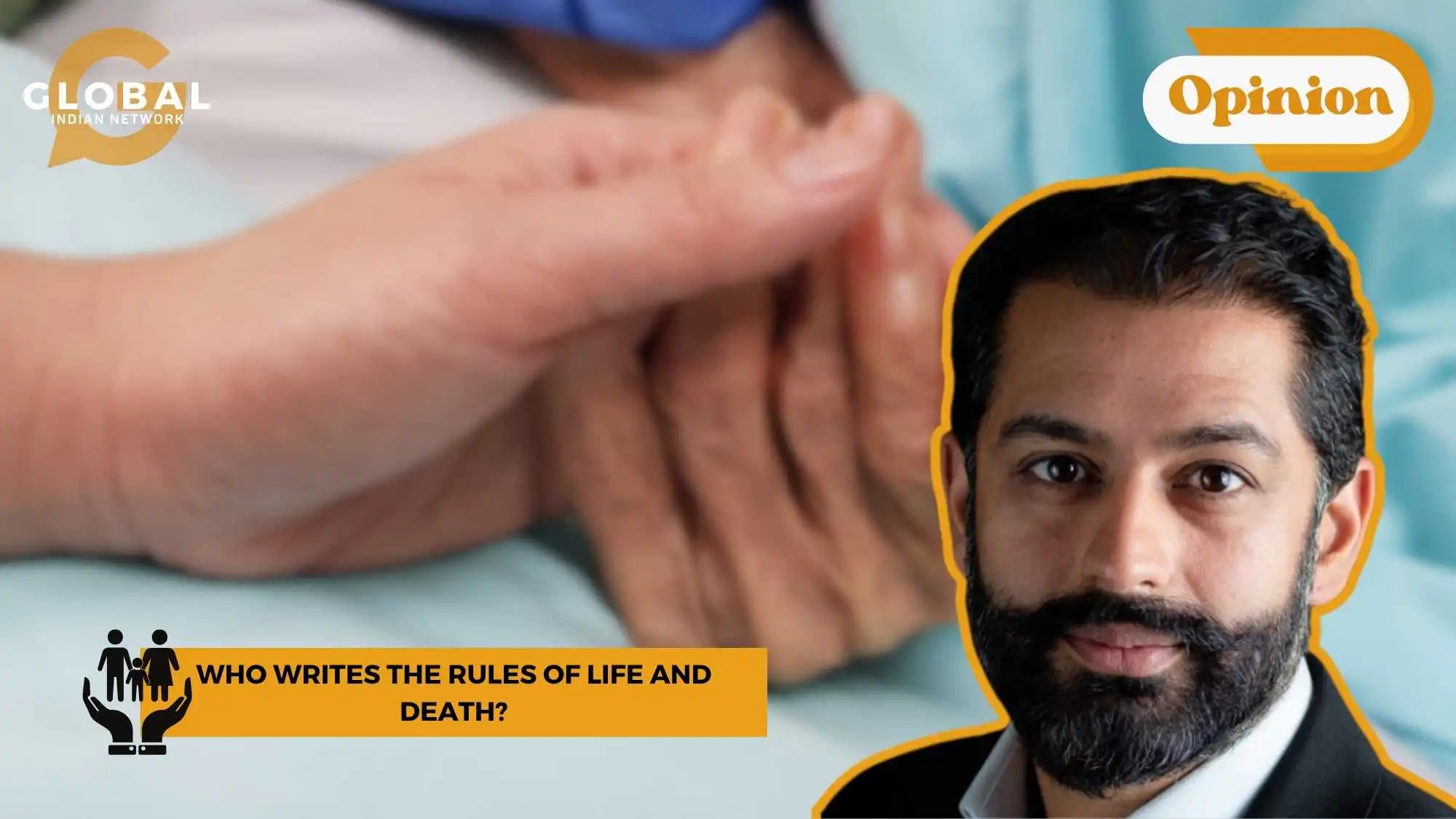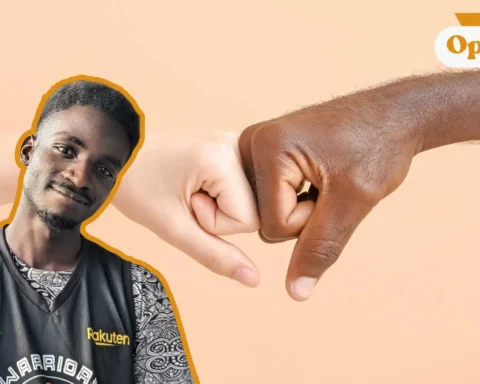There are conversations that linger long after the microphone is switched off.
The ones that don’t just make you think — they make you feel. They stay in your chest.
And if you’re really listening, they force you to re-evaluate everything you thought you knew about justice, compassion, and the laws that claim to govern humanity.
One such conversation took place just days ago on our podcast. On paper, it was about assisted suicide. In practice, it became a piercing mirror held up to society itself — a mirror so sharp that it sliced into deeper truths: the laws that shape our existence, the religious structures that influence them, and the terrifying realisation that perhaps we’ve misunderstood what it means to live with dignity.
This isn’t just about euthanasia. It’s about everything: Life. Death. Belonging. Power. Meaning. And the right to choose.
Law, Religion, and the Grand Illusion of Moral Certainty
Every society is governed by laws, but these laws rarely emerge from logic alone. More often, they are the residual footprints of religious ideals, filtered through power, interpretation, and politics. And yet, we accept them unquestioningly, even when they no longer reflect the lived reality of the people they claim to serve.
Take the idea of assisted dying. In most countries, it remains illegal, considered unethical, and even criminal. But look closer: the same legal systems that deny a terminally ill person the right to die with dignity will sanction state executions, war, and structural poverty. So the issue isn’t whether we value life, it’s whose life we value, and who gets to decide.
Why is helping someone end suffering seen as immoral, while letting people suffer in silence is legally acceptable?
This contradiction is not random. It’s the byproduct of systems where morality is outsourced to institutions, where law becomes a blunt weapon instead of a living reflection of human dignity.

Religion: Compass or Cage?
Religion, at its best, offers depth. It can ground us in humility, in awe, in questions larger than ourselves. But when religious dogma becomes the default foundation of law — unexamined, unchallenged — it doesn’t free us. It cages us.
Let’s look at a real example. In Bangladesh, a nation with a rich cultural and Islamic identity, mass protests erupted in 2023 led by far-right religious groups opposing women’s rights to equal inheritance and education. Demonstrations, led by factions such as Hefazat-e-Islam, framed women’s empowerment as an affront to religious purity.
They weren’t protesting corruption.
They weren’t protesting poverty or violence.
They were protesting the idea that a woman could inherit her father’s land or pursue higher education.
Where does this come from? It comes from the weaponisation of religion — from using faith not to expand human potential, but to suppress it. And while it’s easy to point fingers at one nation, these fractures exist everywhere. They exist in India, in the U.S., and in the Middle East. They exist in quiet courtrooms and noisy parliaments.
Even constitutions often bear divine fingerprints.
The U.S. declares: “In God We Trust.”
But if we truly trusted the divine, wouldn’t we follow the spiritual cosmos — unity, balance, compassion — rather than centuries-old constructs designed to control?
Financial Laws, Planetary Ethics & the Misuse of Faith
This isn’t limited to human rights.
We see it in finance, too. Sharia-compliant banking insists on ethical investment — a noble idea, in theory. But where are the equivalents in other major religions? Why don’t we demand ethical accountability in Christianity-based economies? Why aren’t Jewish, Hindu, Sikh or secular-majority financial systems demanding that our money serve planetary well-being?
We speak of ESG (Environmental, Social, Governance) — but rarely through a moral or spiritual lens. Religion should push us to ask: Where does our money go? Does it uplift or oppress? Heal or harm? Instead, faith is too often reduced to a pamphlet handed out by those seeking power — those unqualified to lead, unchecked in their intent, and unburdened by the consequences of their influence.
And yet, we listen to them.
The Climate Crisis and Our Cosmic Disconnect
Let’s pull back even further.
The climate crisis is not just a scientific issue. It’s a spiritual crisis.
We are the only species intelligent enough to name galaxies — and yet we destroy our own habitat with shocking indifference. Shouldn’t faith, if it really connects us to the divine, pull us back from this cliff Instead, many religious institutions remain silent — or worse, complicit — while the planet burns. We have the technology to colonise Mars, but we’ve lost the moral courage to protect Earth.
Why?
Because our systems are fragmented. Our laws, our faiths, our economies are misaligned — speaking different languages while the planet cries out in a voice we all refuse to hear.
ALSO READ: Assisted Dying in the UK: A Global Indian Perspective
The Human Experience Is Not Neat. Why Should the Laws Be?
The more people I speak to on our podcast — activists, doctors, spiritual leaders, dissidents, dreamers — the more I realise this: There is no one way to be human.
And yet, our laws pretend there is.
Our policies draw hard lines through soft lives.
Our faith structures cling to old certainties while the world evolves around them.
Even the institution of marriage — once sacred, now often contractual — is shaped more by societal pressure than spiritual connection.
What is “appropriate behaviour”?
Who defines it?
Is it a priest? A judge? A politician? Or is it the person living that life, feeling that love, carrying that pain?
These aren’t abstract questions. They’re real.
They determine who gets to marry. Who gets to live. Who gets to die.
Why the Global Indian Network Was Born
At the Global Indian Network, we’re not here to tell people what to believe. We’re here to create the space to ask better questions. We believe that true storytelling is sacred.
That the voices we uplift — from Presidents to prisoners, from doctors to dying patients — carry the weight of truths that don’t fit neatly in columns or campaigns.
We’ve spoken to people who have lost everything. People who’ve chosen death. People who’ve redefined faith not through temples or mosques, but through kindness in action.
These conversations haunt me.
Not because they are sad. But because they are real. They demand that we show up. That we stop parroting old scripts and start writing new ones.
Where Do We Go From Here?
We need a new conversation about law, religion, and life.
One that dares to ask: What is justice without empathy? What is faith without freedom? What is dignity if we don’t allow people the right to define it for themselves?
And maybe most importantly: Who are we if we never question the rules that claim to govern us?
The path forward is not about tearing down religion or law.
It’s about realigning them with the soul of humanity.
That’s the work we’re doing — one voice at a time.
And maybe, just maybe, through those voices, we can finally begin to heal the divide between what we are told to believe and what we know in our bones to be true.

Let us know your thoughts. If you have burning thoughts or opinions to express, please feel free to reach out to us at larra@globalindiannetwork.com.









